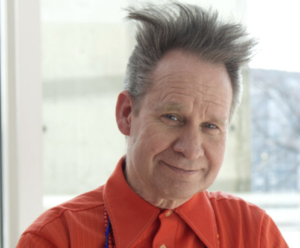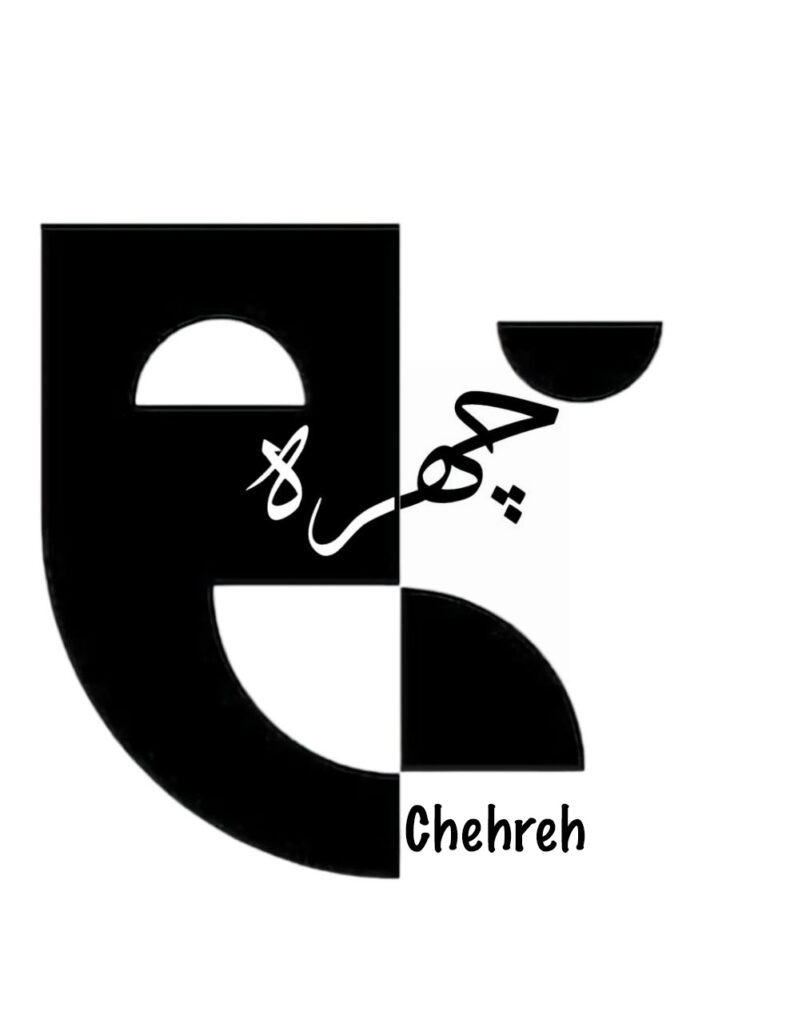پیام شصتمین دورهی روز جهانی تئاتر
۲۰۲۲ – ٢٧ مارس ۷ فروردین ۱۴۰۱
نویسندهی پیام: پیتر سلرز،
ایالات متحده آمریکا کارگردان تئاتر و اپرا و مدیر فستیوال

دوستان عزیز، همچنان که جهان هر ساعت و هر دقیقه به خوراک قطرهچکانی روزانهی گزارشهای خبری گوش میدهد، میتوانم از همهمان دعوت کنم تا به عنوان آفرینشگران، به میدان و قلمرو و چشمانداز شایستهی زمانهی حماسی، دگرگونی حماسی، آگاهی حماسی، تامل حماسی و بینش حماسیمان وارد شویم؟ ما در دورانی حماسی در تاریخ بشر زندگی میکنیم و دگرگونیهای عمیق و مهمی که در مناسبات انسانها با خودشان و با یکدیگر و با جهانهای غیربشری تجربه میکنیم تا حد زیادی فراتر از تواناییمان در فهم، بیان، بازگو کردن و بروز آن است. ما در چرخهی خبری ۲۴ ساعته زندگی نمیکنیم، ما در لبهی زمان زندگی میکنیم. روزنامهها و رسانهها برای پرداختن به آنچه تجربه میکنیم کاملا نامجهز و ناتوان هستند. کجاست آن زبان، کدامند حرکات و کدامند تصاویری که شاید اجازه دهند جابجاییها و گسستهای عمیقی را که تجربه میکنیم درک کنیم؟ چطور میتوانیم اکنون محتوای زندگیمان را در قالب تجربه و نه گزارش خبری انتقال دهیم؟ تئاتر فرم هنری تجربه است. در دنیایی که از کمپینهای مطبوعاتی گسترده، تجربیات شبیهسازی شده و پیشبینیهای مرگبار اشباع شده است، چطور میتوانیم به فراسوی تکرار بینهایت عددها دست یازیم تا تقدس و بیکرانی یک زندگی، یک اکوسیستم، یک دوستی یا کیفیت نور در آسمانی غریب را تجربه کنیم؟ کووید ۱۹ دو سال است که حواس مردم را کند کرده است، زندگی مردم را محدود کرده است، پیوندها را گسسته است و ما را در وضعیت غریب نقطهی صفر سکونت بشری قرار داده است. چه بذرهایی در این سالها باید کاشته و بازکاشته شوند، و کدام گونههای مهاجم رشد بیش از حد داشتهاند و باید تماماً و بالاخره از بین بروند؟ بسیاری از مردم متشنج هستند. خشونت بسیاری شعلهور شده است، بیمنطق یا غیرمنتظره. نظامهای مستقر بسیاری به عنوان ساختارهای ستم در حال وقوع افشاء شدهاند. تشریفات یادبود ما کجایند؟ برای به یاد سپردن چه باید بکنیم؟ کدامند آیینهایی که بالاخره به ما اجازه میدهند تا دوباره تخیل کنیم و قدمهایی را که پیش از این برنداشتهایم، تمرین کنیم؟ تئاترِ بینش حماسی، هدفمندی، بهبودی، اصلاح و مراقبت نیاز به تشریفات تازهای دارد. ما نیازی به سرگرم شدن نداریم. ما نیاز داریم که گرد هم بیاییم. نیاز داریم که در فضا شریک شویم، و نیاز داریم که فضای مشترک را رشد دهیم. ما به فضاهای محفوظ گوش سپردن و برابری نیاز داریم. تئاتر آفرینش فضای برابری میان انسانها، خدایان، گیاهان، جانوران، قطرههای باران، اشکها و نوزایش بر روی زمین است. فضای برابری و عمیقاً گوش سپردن، با زیباییِ پنهان روشن شده و در تعامل عمیق خطر، خودداری، خردمندی، عمل و بردباری زنده نگاه داشته شده است. بودا در کتاب آواتامساکا سوترا۱ ده نوع بردباری بزرگ را در زندگی انسان برمیشمارد. یکی از قدرتمندترین آنها «بردباری در دیدن همه چیز به شکل سراب» نام دارد. تئاتر همیشه زندگی این جهان را شبیه سراب به نمایش گذاشته است و ما را قادر ساخته است که حقیقتِ خیال، توهم، نابینایی و انکار انسانی را با شفافیت و نیروی رهاییبخش دریابیم. ما چنان از آنچه به آن مینگریم و چگونگی نگاه کردنمان به آن اطمینان داریم که از دیدن و حس کردن واقعیتهای جایگزین، احتمالات جدید، رویکردهای متفاوت، روابط نامرئی و پیوندهای بیزمان ناتوانیم. حالا زمان تجدید نیروی عمیق ذهنهامان، حسهامان، تخیلاتمان، تاریخهامان، و آیندههامان است. این کار نمیتواند به دست افراد منزوی که تنها کار میکنند انجام شود. این کاری است که باید با هم انجام بدهیم. تئاتر دعوتی است تا این کار را با هم انجام بدهیم. عمیقاً از کار شما سپاسگزارم.
پیتر سلرز
۱ Avataṃsaka Sūtra یا The Flower Ornament Sutra یکی از کتابهای مقدس بودیسم (مترجم)
ترجمه از متن انگلیسی به فارسی توسط شیرین میرزانژاد – دبیر تحریریه گروه تئاتر اگزیت ایران Translate to Persian (Farsi) by Shirin Mirzanejad Chief editor of Exit Theatre – Iran
***
World Theatre Day Message 2022 by Peter SELLARS Dear Friends,
As the world hangs by the hour and by the minute on a daily drip feed of news reportage, may I invite all of us, as creators, to enter our proper scope and sphere and perspective of epic time, epic change, epic awareness, epic reflection, and epic vision? We are living in an epic period in human history and the deep and consequential changes we are experiencing in human beings’ relations to themselves, to each other, and to nonhuman worlds are nearly beyond our abilities to grasp, to articulate, to speak of, and to express.
We are not living in the 24-hour news cycle, we are living at the edge of time. Newspapers and media are completely unequipped and unable to deal with what we are experiencing.
Where is the language, what are the moves, and what are the images that might allow us to comprehend the deep shifts and ruptures that we are experiencing? And how can we convey the content of our lives right now not as reportage but experience?
Theater is the artform of experience.
In a world overwhelmed by vast press campaigns, simulated experiences, ghastly prognostications, how can we reach beyond the endless repeating of numbers to experience the sanctity and infinity of a single life, a single ecosystem, a friendship, or the quality of light in a strange sky? Two years of COVID-19 have dimmed people’s senses, narrowed people’s lives, broken connections, and put us at a strange ground zero of human habitation.
What seeds need to be planted and replanted in these years, and what are the overgrown, invasive species that need to be fully and finally removed? So many people are on edge. So much violence is flaring, irrationally or unexpectedly. So many established systems have been revealed as structures of ongoing cruelty.
Where are our ceremonies of remembrance? What do we need to remember? What are the rituals that allow us at last to reimagine and begin to rehearse steps that we have never taken before?
1 of 2 pages
The theater of epic vision, purpose, recovery, repair, and care needs new rituals. We don’t need to be entertained. We need to gather. We need to share space, and we need to cultivate shared space. We need protected spaces of deep listening and equality.
Theater is the creation on earth of the space of equality between humans, gods, plants, animals, raindrops, tears, and regeneration. The space of equality and deep listening is illuminated by hidden beauty, kept alive in a deep interaction of danger, equanimity, wisdom, action, and patience.
In The Flower Ornament Sutra, Buddha lists ten kinds of great patience in human life. One of the most powerful is called Patience in Perceiving All as Mirages. Theater has always presented the life of this world as resembling a mirage, enabling us to see through human illusion, delusion, blindness, and denial with liberating clarity and force.
We are so certain of what we are looking at and the way we are looking at it that we are unable to see and feel alternative realities, new possibilities, different approaches, invisible relationships, and timeless connections.
This is a time for deep refreshment of our minds, of our senses, of our imaginations, of our histories, and of our futures. This work cannot be done by isolated people working alone. This is work that we need to do together. Theater is the invitation to do this work together.
Thank you deeply for your work.
Peter Sellars
***
Liebe Freunde,
Während die Welt stündlich und minutenweise an einem täglichen Tropf von Nachrichtenberichten hängt, darf ich uns alle als Schöpfer einladen, in unseren angemessenen Bereich und unsere Sphäre und Perspektive von epischer Zeit, epischer Veränderung, epischem Bewusstsein, Epos einzutreten Reflexion und epische Vision? Wir leben in einer epischen Periode der Menschheitsgeschichte, und die tiefen und folgenreichen Veränderungen, die wir in den Beziehungen der Menschen zu sich selbst, zueinander und zu nichtmenschlichen Welten erleben, liegen fast außerhalb unserer Fähigkeiten, sie zu begreifen, zu artikulieren, darüber zu sprechen, und auszudrücken.
Wir leben nicht im 24-Stunden-Nachrichtenzyklus, wir leben am Rande der Zeit. Zeitungen und Medien sind völlig ungerüstet und nicht in der Lage, mit dem umzugehen, was wir erleben.
Wo ist die Sprache, was sind die Bewegungen und was sind die Bilder, die es uns ermöglichen könnten, die tiefgreifenden Verschiebungen und Brüche zu verstehen, die wir erleben? Und wie können wir die Inhalte unseres Lebens gerade jetzt nicht als Reportage, sondern als Erfahrung vermitteln?
Theater ist die Erlebniskunst.
Wie können wir in einer Welt, die von gewaltigen Pressekampagnen, simulierten Erfahrungen und grausigen Prognosen überwältigt ist, über die endlose Wiederholung von Zahlen hinausreichen, um die Heiligkeit und Unendlichkeit eines einzelnen Lebens, eines einzelnen Ökosystems, einer Freundschaft oder der Qualität des Lichts in einem zu erfahren? seltsamer himmel? Zwei Jahre COVID-19 haben die Sinne der Menschen getrübt, das Leben der Menschen eingeengt, Verbindungen unterbrochen und uns an einen seltsamen Ground Zero der menschlichen Besiedlung gebracht.
Welche Samen müssen in diesen Jahren gepflanzt und neu gepflanzt werden, und welche überwucherten, invasiven Arten müssen vollständig und endgültig entfernt werden? So viele Menschen sind nervös. So viel Gewalt flammt auf, irrational oder unerwartet. So viele etablierte Systeme wurden als Strukturen anhaltender Grausamkeit entlarvt.
Wo sind unsere Gedenkfeiern? Was müssen wir uns merken? Was sind die Rituale, die es uns endlich ermöglichen, Schritte neu zu denken und zu proben, die wir noch nie zuvor unternommen haben?
1 von 2 Seiten
Das Theater der epischen Vision, des Zwecks, der Genesung, Reparatur und Pflege braucht neue Rituale. Wir müssen nicht unterhalten werden. Wir müssen uns versammeln. Wir müssen Raum teilen, und wir müssen den gemeinsamen Raum kultivieren. Wir brauchen geschützte Räume des tiefen Zuhörens und der Gleichberechtigung.
Theater ist die Schaffung des Raumes der Gleichheit zwischen Menschen, Göttern, Pflanzen, Tieren, Regentropfen, Tränen und Regeneration auf Erden. Der Raum der Gleichheit und des tiefen Zuhörens wird von verborgener Schönheit erhellt, die in einem tiefen Zusammenspiel von Gefahr, Gleichmut, Weisheit, Handeln und Geduld am Leben erhalten wird.
Im Blumenornament-Sutra listet Buddha zehn Arten großer Geduld im menschlichen Leben auf. Eine der mächtigsten heißt Geduld in der Wahrnehmung aller als Trugbilder. Das Theater hat das Leben dieser Welt immer wie eine Fata Morgana dargestellt, die es uns ermöglicht, menschliche Illusionen, Täuschungen, Blindheit und Verleugnung mit befreiender Klarheit und Kraft zu durchschauen.
Wir sind uns dessen, was wir betrachten, und der Art und Weise, wie wir es betrachten, so sicher, dass wir nicht in der Lage sind, alternative Realitäten, neue Möglichkeiten, unterschiedliche Herangehensweisen, unsichtbare Beziehungen und zeitlose Verbindungen zu sehen und zu fühlen.
Dies ist eine Zeit für eine tiefe Erfrischung unseres Geistes, unserer Sinne, unserer Vorstellungskraft, unserer Geschichte und unserer Zukunft. Diese Arbeit kann nicht von isolierten Personen geleistet werden, die alleine arbeiten. Das ist Arbeit, die wir gemeinsam leisten müssen. Theater ist die Einladung, diese Arbeit gemeinsam zu machen.
Vielen Dank für Ihre Arbeit.
Peter Sellar
***
English
Peter SELLARS, USA
Opera, Theatre and Festival Director
Peter Sellars, born in Pittsburgh, Pennsylvania (USA) is an opera, theatre and festival director who has gained international renown for his ground-breaking and transformative interpretations of classics, advocacy of 20th century and contemporary music, and collaborative projects with an extraordinary range of creative and performing artists. His work illuminates the power of art as a means of moral expression and social action.
He has staged operas at the Dutch National Opera, English National Opera, Festival d’Aix-en-Provence, Lyric Opera of Chicago, Opéra National de Paris and the Salzburg Festival, among others.
Sellars has collaborated on the creation of many works with composer John Adams, including Nixon in China, The Death of Klinghoffer, El Niño, Doctor Atomic, The Gospel According to the Other Mary and The Girls of the Golden West. Inspired by the compositions of Kaija Saariaho, he has guided the creation of productions of her work (L’Amour de loin, Adriana Mater, Only the Sound Remains) that have expanded the repertoire of modern opera.
Recent (pre-pandemic) projects include a new production of Doctor Atomic at the Santa Fe Opera, a staging of Claude Vivier’s Kopernikus for Festival D’Automne (Paris), and a production of Mozart’s Idomeneo for the Salzburg Festival.
Late in 2020 he conceived and directed “this body is so impermanent …” a film created in response to the global pandemic inspired by text from the Vimalakirti Sutra. Upcoming projects include a staging of the Roman du Fauvel in collaboration with musicologist and founder of the Sequentia Ensemble, Benjamin Bagby; a revival of Sellars’ acclaimed production of Tristan und Isolde, its story illuminated and deepened by the transcendent videography created by artist Bill Viola; and Perle Noire, meditations for Josephine, with music by composer and multi-instrumentalist Tyshawn Sorey performed by the incomparable vocalist Julia Bullock. Sellars has led several major arts festivals, including the 1990 and 1993 Los Angeles Festivals and the 2002 Adelaide Arts Festival. In 2006 he was Artistic Director of New Crowned Hope, a festival in Vienna for which he invited emerging and established artists from diverse cultural backgrounds to create new work in the fields of music, theater, dance, film, the visual arts and architecture for the celebration of Mozart’s 250th birth anniversary. He served as the Music Director of the 2016 Ojai Music Festival.
Sellars is a Distinguished Professor in the Department of World Arts and Cultures at UCLA, the founding director of the Boethius Institute at UCLA, a resident curator of the Telluride Film Festival, and was a Mentor for the Rolex Arts Initiative. He is the recipient of a MacArthur Fellowship, the Erasmus Prize for contributions to European culture, the Gish Prize, and is a member of the American Academy of Arts and Sciences. He has been awarded the prestigious Polar Music Prize and been named Artist of the Year by Musical America.
festival in Vienna for which he invited emerging and established artists from diverse cultural backgrounds to create new work in the fields of music, theater, dance, film, the visual arts and architecture for the celebration of Mozart’s 250th birth anniversary. He served as the Music Director of the 2016 Ojai Music Festival.
Sellars is a Distinguished Professor in the Department of World Arts and Cultures at UCLA, the founding director of the Boethius Institute at UCLA, a resident curator of the Telluride Film Festival, and was a Mentor for the Rolex Arts Initiative. He is the recipient of a MacArthur Fellowship, the Erasmus Prize for contributions to European culture, the Gish Prize, and is a member of the American Academy of Arts and Sciences. He has been awarded the prestigious Polar Music Prize and been named Artist of the Year by Musical America.
***
Deutsch
Peter SELLERS, USA
Opern-, Theater- und Festivaldirektor
Peter Sellars, geboren in Pittsburgh, Pennsylvania (USA), ist ein Opern-, Theater- und Festivalregisseur, der sich internationales Ansehen für seine bahnbrechenden und transformativen Interpretationen von Klassikern, sein Eintreten für die Musik des 20 von kreativen und darstellenden Künstlern. Seine Arbeit beleuchtet die Kraft der Kunst als Mittel des moralischen Ausdrucks und des sozialen Handelns.
Er hat unter anderem Opern an der Dutch National Opera, der English National Opera, dem Festival d’Aix-en-Provence, der Lyric Opera of Chicago, der Opéra National de Paris und den Salzburger Festspielen inszeniert.
Sellars hat bei der Entstehung vieler Werke mit dem Komponisten John Adams zusammengearbeitet, darunter „Nixon in China“, „The Death of Klinghoffer“, „El Niño“, „Doctor Atomic“, „The Gospel Appointment to the Other Mary“ und „The Girls of the Golden West“. Inspiriert von den Kompositionen von Kaija Saariaho hat er die Entstehung von Produktionen ihrer Werke (L’Amour de loin, Adriana Mater, Only the Sound Remains) geleitet, die das Repertoire der modernen Oper erweitert haben.
Zu den jüngsten (vor der Pandemie) Projekten gehören eine Neuproduktion von Doctor Atomic an der Santa Fe Opera, eine Inszenierung von Claude Viviers Kopernikus für das Festival D’Automne (Paris) und eine Produktion von Mozarts Idomeneo für die Salzburger Festspiele.
Ende 2020 konzipierte und inszenierte er „This body is so impermanent …“, einen Film, der als Reaktion auf die globale Pandemie entstand und von einem Text aus dem Vimalakirti-Sutra inspiriert war. Zu den kommenden Projekten gehören eine Inszenierung des Roman du Fauvel in Zusammenarbeit mit dem Musikwissenschaftler und Gründer des Sequentia Ensembles, Benjamin Bagby; eine Wiederbelebung von Sellars‘ gefeierter Inszenierung von Tristan und Isolde, deren Geschichte durch die transzendente Videografie des Künstlers Bill Viola beleuchtet und vertieft wird; und Perle Noire, Meditationen für Josephine, mit Musik des Komponisten und Multiinstrumentalisten Tyshawn Sorey, gespielt von der unvergleichlichen Sängerin Julia Bullock. Sellars hat mehrere große Kunstfestivals geleitet, darunter 1990 und 1993 die Los Angeles Festivals und 2002 das Adelaide Arts Festival. 2006 war er künstlerischer Leiter von New Crowned Hope, einem Festival in Wien, zu dem er aufstrebende und etablierte Künstler mit unterschiedlichem kulturellem Hintergrund einlud, neue Werke in den Bereichen Musik, Theater, Tanz, Film, bildende Kunst und Architektur zu schaffen Feier zum 250. Geburtstag Mozarts. Er war Musikdirektor des Ojai Music Festival 2016.
Sellars ist Distinguished Professor am Department of World Arts and Cultures an der UCLA, Gründungsdirektor des Boethius-Instituts an der UCLA, Resident Curator des Telluride Film Festival und war Mentor für die Rolex Arts Initiative. Er erhielt ein MacArthur-Stipendium, den Erasmus-Preis für Beiträge zur europäischen Kultur, den Gish-Preis und ist Mitglied der American Academy of Arts and Sciences. Er wurde mit dem renommierten Polar Music Prize ausgezeichnet und von Musical America zum Künstler des Jahres gekürt.

